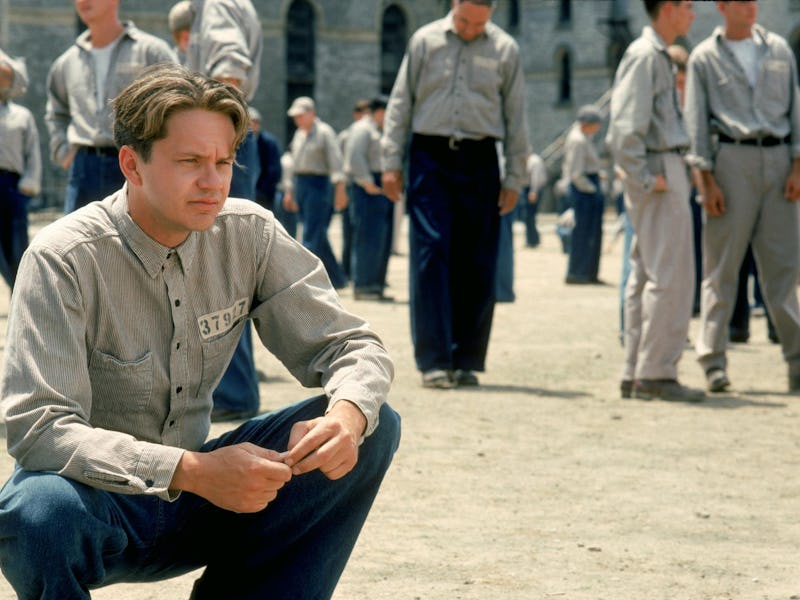Andy Dufresne Was Guilty
Andy's biggest accomplishment was convincing the world he was innocent.

The examination of popular culture is no longer a pursuit reserved for academics. Fan theories spring up across the internet every week. Anyone can toss out an idea about the hidden meaning behind a recurring prop in a TV show or a seemingly insignificant character stenciled into the background of comic book panels. It doesn’t matter if there are letters after your name as long as you put forth a compelling argument that taps into an unexplored idea. Some theories thrive and others take a nosedive upon closer inspection. Let’s see which ones stand up.
The Shawshank Redemption’s Andy Dufresne is a nice guy. Quiet and reserved, with a slight build that wouldn’t befit a modern day cinema hero, by the film’s end it’s refreshing to witness an unassuming figure achieve such greatness. However, that might all be down to one previously unexplored facet of his personality, as explained by one Reddit user who suggests Dufresne is a “guilty sociopath.” Why? Because he is in fact an “icy and remorseless killer who manipulated everyone around him.”
That’s a bold position. The second part of that statement we know to be true because he does indeed manipulate those around him for his own gain, from the warden to his fellow inmates. Everyone is a part of Andy’s escape plan; they just don’t know it. Could there be some truth to the first half of that sentence?
Chess underpins the entire theory with the notion that Red, who tells the story, is utterly clueless to its rules. He’s unable to see that Andy has lured everyone into a game and treats them — and him — like mere pawns. Andy makes a beeline for Red because he’s a man who can “get things”, it’s only later that he realizes Red may be of use further down the line. OK, that’s not so much a theory as a half-baked attempt at addressing symbolism, but additional elements are worth considering.
One of fiction’s most pliable weapons is the unreliable narrator. We treat the use of first person narratives and confessional voiceovers as proof of some absolute truth, as if no person in history has ever lied to themselves. The theory has a point in this regard because Red is unreliable in the sense that he tells us Andy’s story based on what Andy tells him. We’re led to believe that Warden Norton is satan incarnate. A ruthless, paper-pushing self-serving bastard who himself manipulates Dufresne. This is all bunkum, according to iscarletpimpernel’s theory, who posits that the Warden is a simpleton unable to have concocted those schemes that Andy helped assist. For example, the only times we see the Warden proper through Red’s eyes he “looks completely perplexed listening to Andy like a school child would listen to a teacher.” Perhaps the only solid part of the theory; after all, much of the onscreen action takes place in some imagined realm of Red’s making, it still doesn’t really answer the original statement.
Moving on, there are connections to young Tommy, whom Andy schools. Apparently, he is “Andy’s ultimate work of art.” He feeds the idea of a confessional to the impressionable kid who passes it off as truth, and is later killed for it. Problems with this idea — and there are many which feature heavily in the comments — are obvious to anyone who’s seen the movie recently. Tommy has no clue as to why Andy is locked up. Red is the only one present when Tommy realizes he may hold the key to Andy’s freedom.
More attempts at bolstering this theory include the creation of the fake bank account into which Andy siphons the Warden’s money. Making someone up “out of thin air” is cold, hard fact that he’s a sociopath. And the reason he leaves for that sun-kissed Mexican beach is to avoid the sentencing judge. What?
With holes galore this idea barely supports itself. There are a few observations (the Warden’s incompetence) that aren’t half bad, but there’s no evidence to back up the theory that Andy is a) a sociopath b) guilty c) remorseless or d) a killer. Does it confirm that he’s a little strange? Yes. But we already knew that.